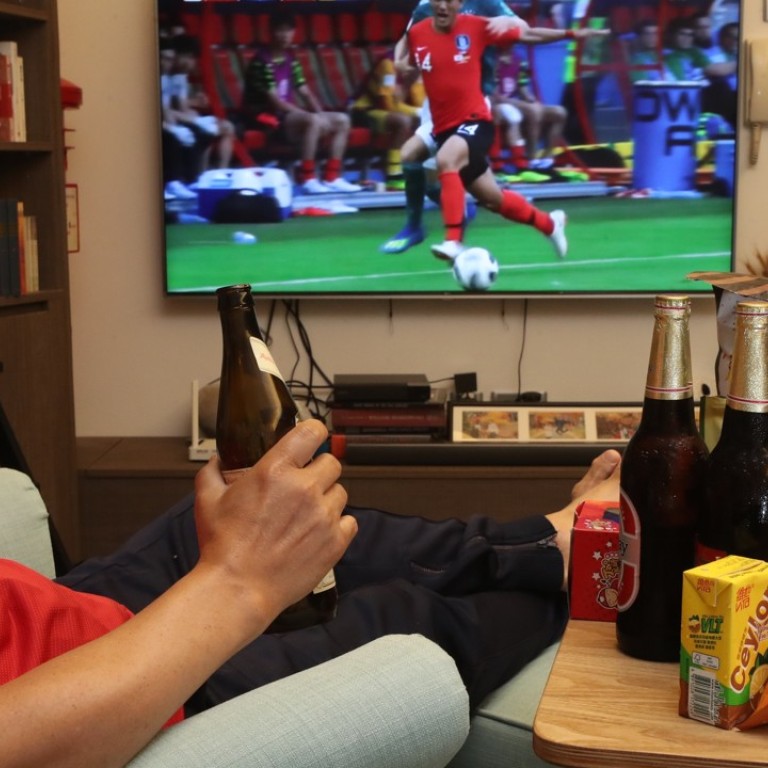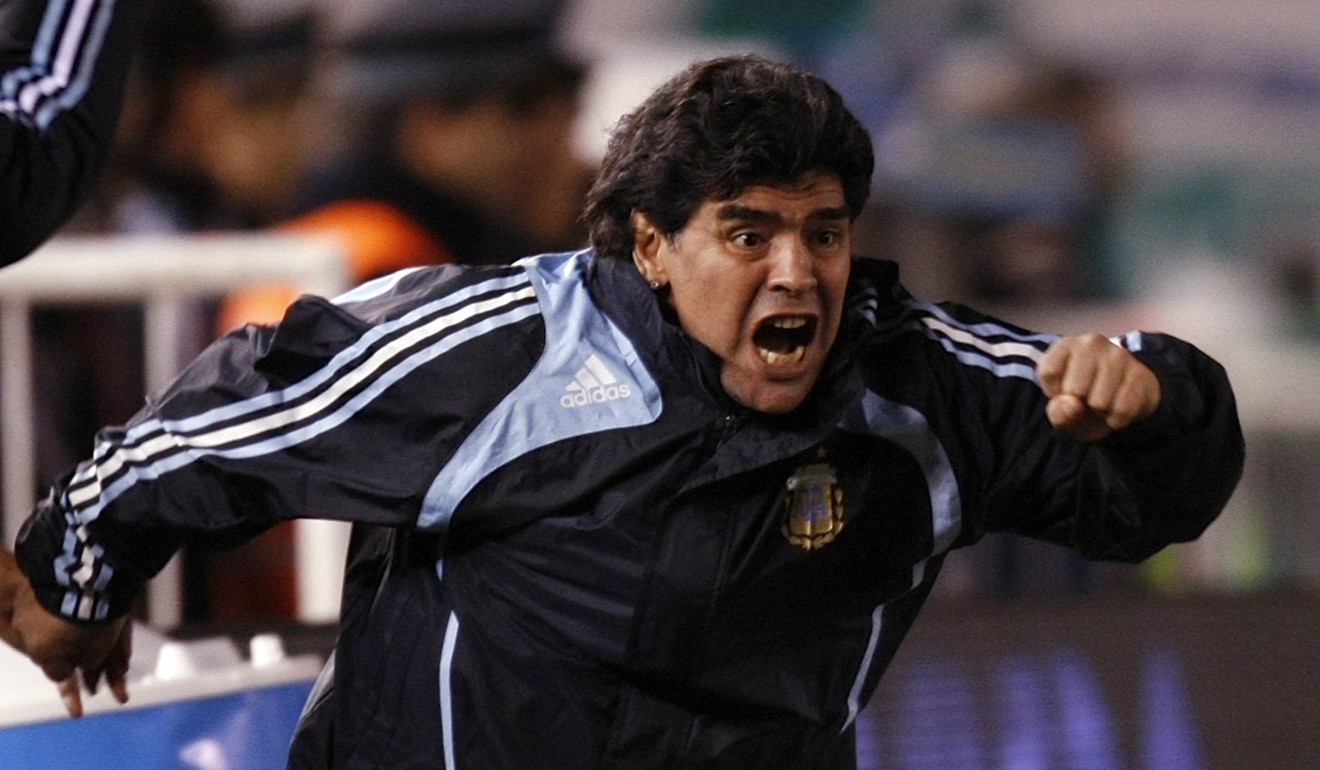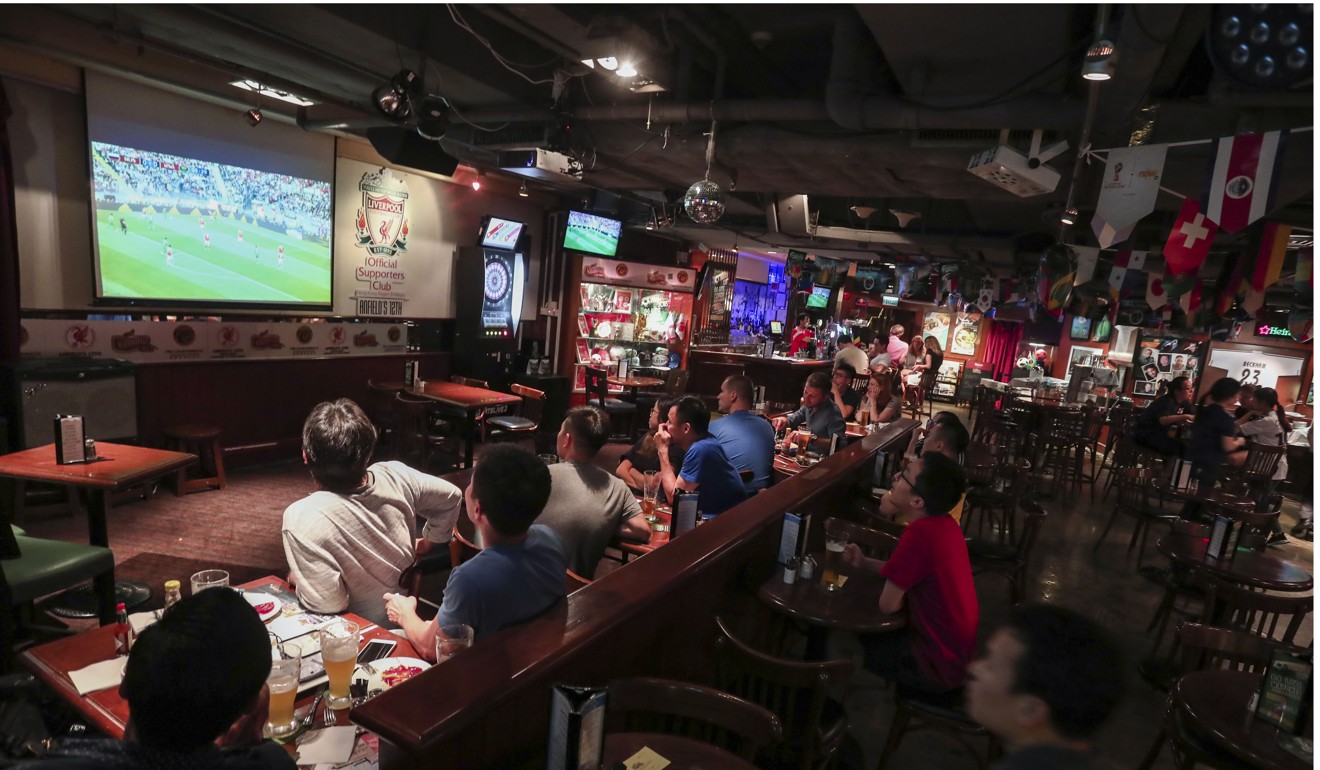
Why watching the World Cup could kill you – late nights, beer, bad food and the roller coaster excitement could trigger a heart attack
It is especially risky for men with an existing or hidden heart problem when watching their favourite teams, studies suggest – but winning ways could have an unexpected bonus for society
Staying up late for games, lounging on a sofa for hours and snacking on fast food loaded with salt, fats and carbs all put more stress on the heart and affect blood pressure, not to mention the risk of a heart attack for soccer fans amid an emotional roller coaster as their teams battle it out in Russia.
It is especially risky for men with an existing or hidden heart problem when watching their favourite teams, studies suggest.

A stark reminder came from no less than Argentinian soccer legend Diego Maradona, 57, who reportedly fell ill in the VIP box on Tuesday while witnessing his country’s nerve-shredding 2-1 victory against Nigeria which kept the team in the competition.
During the 2002 World Cup, Hong Kong’s Queen Mary Hospital saw 22 admissions for acute cardiovascular events, while in the same period the following year there were 15 and in 2004 just 11.
Why this World Cup could be the last shown live on Hong Kong TV
Although there are no formal studies on how watching soccer matches affects the health of Hongkongers, University of Hong Kong cardiology professor David Siu Chung-wah pointed out the cases at Queen Mary showed a positive correlation between cardiovascular events and the World Cup.
“It’s not just the World Cup, there were previous studies about sudden activities like an earthquake easily triggering heart attacks in those who might have a pre-existing heart condition,” Siu said.

During the 2006 World Cup in which Italy was crowned champion, German men were 2.66 times more likely to suffer from an acute cardiovascular condition, according to a study published in The New England Journal of Medicine in 2008.
A total of 4,279 patients were admitted to hospital with cardiovascular conditions in the greater Munich area on days the German team was playing, with 47 per cent known to have underlying heart problems, the study said. It was especially ominous for men as they had 3.26 times more risk of problems, compared with the 1.8 times for women.
On match days, the highest average incidence of events occurred in the first two hours after kick-off, the study said.
“Viewing a stressful soccer match more than doubles the risk of an acute cardiovascular event,” the study concluded. “In view of this excess risk, particularly in men with known coronary heart disease, preventive measures are urgently needed.”
World soccer’s governing body, Fifa, the World Health Organisation and Russia’s health department have targeted fans this year, producing a video campaign promoting healthy lifestyles and warning about the risks of smoking, excessive salt intake and physical inactivity.

Fifa also launched a campaign on sudden cardiac arrest to raise awareness about the condition during the tournament.
Hong Kong cardiologist Dr Bernard Wong Bun-lap said those with heart issues are more likely to experience cardiovascular events when watching things such as the World Cup.
“The individual can easily get excited, leading to a rise in blood pressure, pulse and other conditions, triggering cardiovascular events,” Wong said, adding that 50 per cent of patients have hidden symptoms and might not be aware they have underlying heart conditions.
Exercising in middle age reverses impact of a sedentary lifestyle
“A lot of the time those who watch the World Cup are people who do not exercise much but love to drink, smoke and eat junk food, those we call ‘couch potatoes’.”
Siu said a lot of cardiac events are related to alcohol intake, with excessive drinking on Friday and weekend nights just one example of how people can easily trigger arrhythmia, or an irregular heartbeat.

“So if someone consumes more alcohol during the World Cup, or increases their sodium intake due to junk food, that person is more likely to experience cardiovascular events,” Siu added.
But it’s not all bad news, with some soccer fans scoring in the bedroom after a victory on the pitch. According to the German study, the country saw a rare baby boom nine months after it hosted the 2006 World Cup. With one of the lowest birth rates in Europe, the country recorded a 30 per cent increase in births compared to the year before, a possible after-effect of soccer euphoria.
The same trend was observed in Spain, with one region of Catalonia experiencing a 16 per cent rise in the birth rate nine months after Barcelona won the 2009 Champions League.
The small island nation of Iceland also saw a record number of births nine months after its historic 2-1 victory over England at the Euro 2016 competition.
So for a country where birth rates are persistently low, a World Cup win could be just the thing.
Tips for staying healthy during World Cup 2018:
■ Reduce smoking
■ Avoid alcohol and cut down on sugary drinks
■ Maintain a habit of doing aerobic exercises for 30-45 minutes every day
■ Try to avoid high sodium snacks and high fat junk food; switch to healthier options including nuts and fresh fruits
■ Avoid lying down or sitting for too long; try to move around at times and do some stretching
■ Do light exercise at home while watching the game
■ Try avoiding staying up late; get enough rest and sleep
■ If you do stay up late, try to cut back on something, either no junk food or no alcohol
■ Drink enough water to stay hydrated
■ Most importantly, have a regular medical check-up annually


